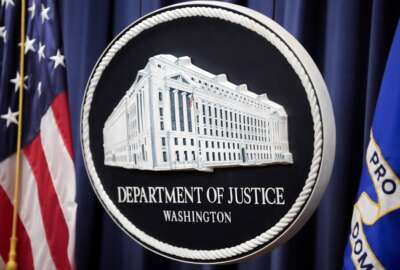Declassification board ‘agitates’ for changes to document management
The Public Interest Declassification Board submitted 14 recommendations to President Barack Obama at the end of November. The suggestions cover everything from ...
wfedstaff | April 17, 2015 4:27 pm
The petabytes of data the government produces each year is crushing the system that is supposed to evaluate it for public release.
The data deluge and declassification challenge is so great that a board of experts has recommended to the White House several radical changes to how agencies deal with documents.
“If you look at the amount of documents that are produced, simply the difference between the first George Bush administration and the second administration, it’s gone from less than two terabytes to about 40 [terabytes] in the space of three presidential archives that have gone to the various libraries,” said Nancy Soderberg, the chairwoman of the Public Interest Declassification Board and former deputy national security advisor, in an interview with Federal News Radio. “Right now having an individual look at every page simply is not feasible. The result is if there is no change, the public will not have access to what its government does in any meaningful way.”

The board sent its recommendations to President Barack Obama Nov. 27 after almost three years of research and consultation with federal agencies, such as the departments of Defense, State and Energy, open government advocates, academics, technology companies and many others.
No changes for seven decades
The current three-tiered system requires agencies to first decide if they need to be classified, and then at which of three levels-confidential, secret or top secret.
The board said that system is broken because it’s based on Cold War era processes and hasn’t kept up with the technology advances of the last 72 years.
President Franklin D. Roosevelt created the current system by executive order in 1940 during a time when all documents were paper and the volume of documents wasn’t nearly as great as it is today.
For example, in the eight years of the Bush administration, from 2000 to 2008, the government created about 250 million emails that are considered historically valuable. During the eight years of the Obama administration, experts expect more than a billion emails to have historical value. The board said there is no way under the current system for agency records managers to review, analyze and classify or declassify all of those documents.
The other issue at hand is the over-classification of documents because of the risk averse culture of the government, and the amount of time it takes to declassify. The recommendations also focus on how to improve the declassification process.
The recommendations are broad and address everything from moving out of the three-tiered classification system to a two-tiered process to strengthening the National Archives and Records Administration’s National Declassification Center to giving federal employees “safe harbor” protection if they adhere to a rigorous risk management process in how they perform their classification duties.
“What we are looking at is the confidential and secret being collapsed into one,” Soderberg said. “The unclassified various things we are not recommending that we really change. The declassification piece is how do we declassify things?”
New rule coming for CUI
A separate working group is looking at unclassified data. John Fitzpatrick, the director of the Information Security Oversight Office (ISOO) at NARA, said the interagency committee will release a proposed rule in early 2013 to rationalize the number and use of unclassified labels such as sensitive but unclassified (SBU) or for official use only (FOUO).

Fitzpatrick said the board’s recommendations and the harmonization and reduction of unclassified labels are separate efforts but related.
Soderberg said the goal of the board’s efforts is to reduce the classification to secret and top secret, but also take steps to get information to the public more quickly.
One of the ways to get declassification done more quickly is to make sure each agency has a staff historian to review documents.
“Not everything has to be declassified or is of interest to the public,” Soderberg said. “But rather than having historians search for a needle in the haystack, a contemporaneous set-aside of the documents that people recognize will be of historical interest would greatly aid the process of getting things out there.”
The board said technology needs to play a big role in changing the classification and declassification system.
She said the board recommended pilots, possibly with some of the presidential libraries.
“There’s a trove of treasurers at each of them,” she said. “The public uses those libraries and they are one of the more dynamic institutions in the country. We want to look at ways we could assist them to have a broader declassification process.”
A few best practices
Soderberg said the entire effort to revamp the classified records management process needs to be led by the White House.
“What we are hoping will happen after this is the White House will take and lead an interagency process to create a White House steering committee that would take these recommendations to heart, design their own implementing recommendations and then really from the White House drive a process here,” Soderberg said. “There’s a lot of really good work that’s gone into it and a lot of discussions. We don’t expect everyone to agree with the recommendations. Part of the role of an outside board is to try and spur heated discussion and drive it within the White House.”
She added the White House and agency records managers have been involved with the development so they are familiar with the suggestions, which bodes well for the implementation of some of them.
There also are several agencies which are ahead of the pack in managing classified documents, the CIA being one of them.

Marty Faga, a member of the board and former director of the National Reconnaissance Office, said the CIA is using meta data to identify information more easily.
“The CIA is experimenting with technology to enhance declassification, make it more accurate and to make it faster,” Faga said. “They are not alone. All the declassification managers that we meet are really enthusiastic about what they are trying to do. They all have limited funds, but they generally have pretty good executive support above them.”
The Intelligence Advanced Research Projects Agency (I-ARPA) also is using technology innovatively for advanced language processing and other information handling techniques, Fitzpatrick said.
He said the same technology could be used for classifying and declassifying information more quickly and through automation.
Support for recommendations broad
The board said the key for this entire effort is White House support because it requires a significant shift in culture across the government.
“The government by its very nature is risk averse and when in doubt classify at the higher level. They end up protecting their own interest, which is to keep the information classified, and there are very few people inside the U.S. government advocating for the public’s right to access this,” Soderberg said. “That’s why you need strong presidential leadership to do this. President Obama has appointed this board knowing that you [use] outside agitators to look at this. The board is made up of people who are very committed to balancing the two. We’ve all served in government in some fashion and have dealt with classified information, and understand the need to have secrets, but we’re all convinced there could be better balance for the public.”
Reaction to the recommendations has been positive. One records manager from the Air Force spoke up at the board’s event Thursday at NARA and expressed some concerns over the changes, specifically around the idea of records versus documents. He said there are a lot of redundancies in records, but the new classification of documents are actually fairly small.
The Constitution Project was one of several open government advocates at the event to express support the recommendations. They said there is some concern about the support to move out of the zero risk culture, the idea that all risk is too much risk so the government should classify everything.
RELATED STORIES:
Document classification system under review
Comments sought to reform system for secret docs
Executive Order seeks to simplify document classification
Copyright © 2024 Federal News Network. All rights reserved. This website is not intended for users located within the European Economic Area.
Jason Miller is executive editor of Federal News Network and directs news coverage on the people, policy and programs of the federal government.
Follow @jmillerWFED






